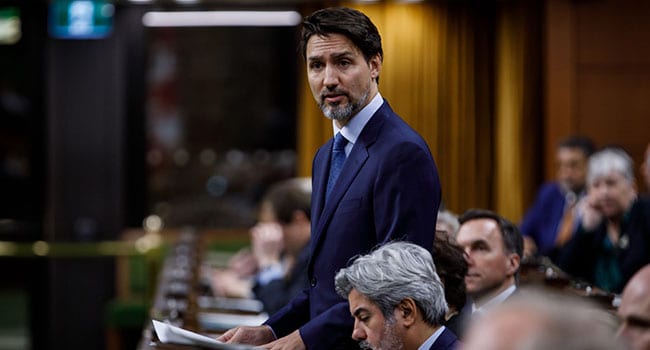 Canada recently failed in a bid to become a non-permanent member of the United Nations Security Council. It’s something neither Stephen Harper’s nor Justin Trudeau’s government has been able to achieve.
Canada recently failed in a bid to become a non-permanent member of the United Nations Security Council. It’s something neither Stephen Harper’s nor Justin Trudeau’s government has been able to achieve.
The last time Canada was on the Security Council was when Jean Chretien was prime minister in 2000. Before that, it was during the Brian Mulroney era in 1990.
The fact that Canada wasn’t able to garner enough votes among member states in the UN isn’t surprising. Canada’s foreign policy isn’t what it used to be.
In fact, an open letter to the UN signed by over 100 influencers, including Noam Chomsky and David Suzuki, stated, “Despite its peaceful reputation, Canada is not acting as a benevolent player on the international stage.”
In Latin America, Canada does little more than rubber stamp the endeavours of the Americans and is developing a reputation similar to that of the United States.
Despite overwhelming international pressure and even the advice of former Canadian diplomats, Trudeau won’t speak out against efforts of the Netanyahu-Gantz government of Israel to violate international law and annex Palestinian territories in the West Bank. Few Canadians are aware of how damaging this is to our international reputation.
Perhaps most egregiously, Canada continues to provide military machinery to Saudi Arabia while that country contributes to a civil war in Yemen. During a global pandemic, when Western powers are fully aware that starving, immune-compromised Yemini refugees pose a serious threat to global health, Canada continues to be a part of the problem.
Unfortunately, the list of ethical failures by the current Liberal government is very long.
We have even seen how it impacts domestic policy, as our government fails to respect the UN Declaration on the Rights of Indigenous Peoples. How far we have fallen!
Despite our country’s actions in recent decades, Canada’s erstwhile reputation on the international stage is well deserved. When we look at much of the good our country has done, one name comes up again and again: Joe Clark.
Though he was prime minister for less than a year, Clark established a precedent by allowing tens of thousands of refugees from Vietnam and Cambodia to take residence in Canada.
Despite the crimes against humanity being committed by the apartheid government, Pierre Trudeau never agreed to sanction South Africa.
It was Mulroney’s secretary of state for external affairs, Clark, who went against the wishes of powerful leaders like Ronald Reagan and Margaret Thatcher and did so. Clark demonstrated the influence a middle power like Canada could have in promoting an ethical international agenda.
Clark and Mulroney also had the courage to cross political party lines by appointing former Ontario NDP leader Stephen Lewis as Canadian ambassador to the UN. Lewis was, and continues to be, perhaps the most ethical, outspoken and well-respected Canadian diplomat of all time.
Just as the list of Trudeau and Harper failures is long, so is the list of Clark-Mulroney accomplishments. Clark took a leadership role in responding to the Ethiopian famine. He was also able to challenge a very violent American policy in Central America and bring refugees from the region to Canada, all while maintaining good relations with our neighbour to the south.
Not all of Justin Trudeau’s foreign policies are bad. And I certainly wrote my share of letters to my Progressive Conservative member of Parliament during the Clark-Mulroney years. It also needs to be pointed out that Clark’s Middle East policies had a lot in common with Trudeau’s.
The point, ultimately, is that Canadians are no longer seen as ethical players on the world stage. We have done nothing significant to challenge powerful allies on moral issues since Chretien refused to send Canadian troops to invade Iraq in 2003.
We’d like to say the world needs more Canada. But in reality, Canada needs more Joe Clark.
Troy Media columnist Gerry Chidiac is an award-winning high school teacher specializing in languages, genocide studies and work with at-risk students.
The views, opinions and positions expressed by columnists and contributors are the author’s alone. They do not inherently or expressly reflect the views, opinions and/or positions of our publication.

